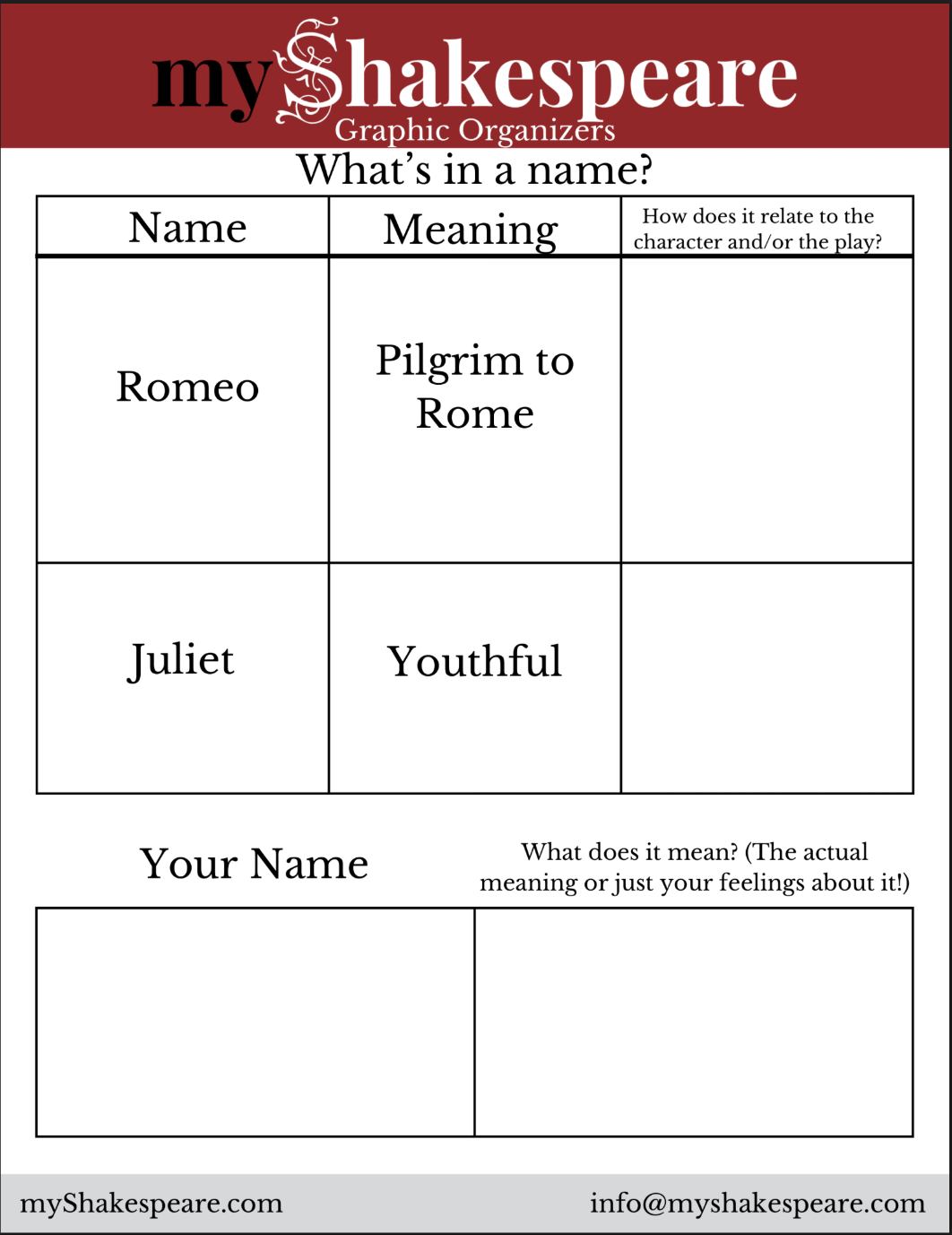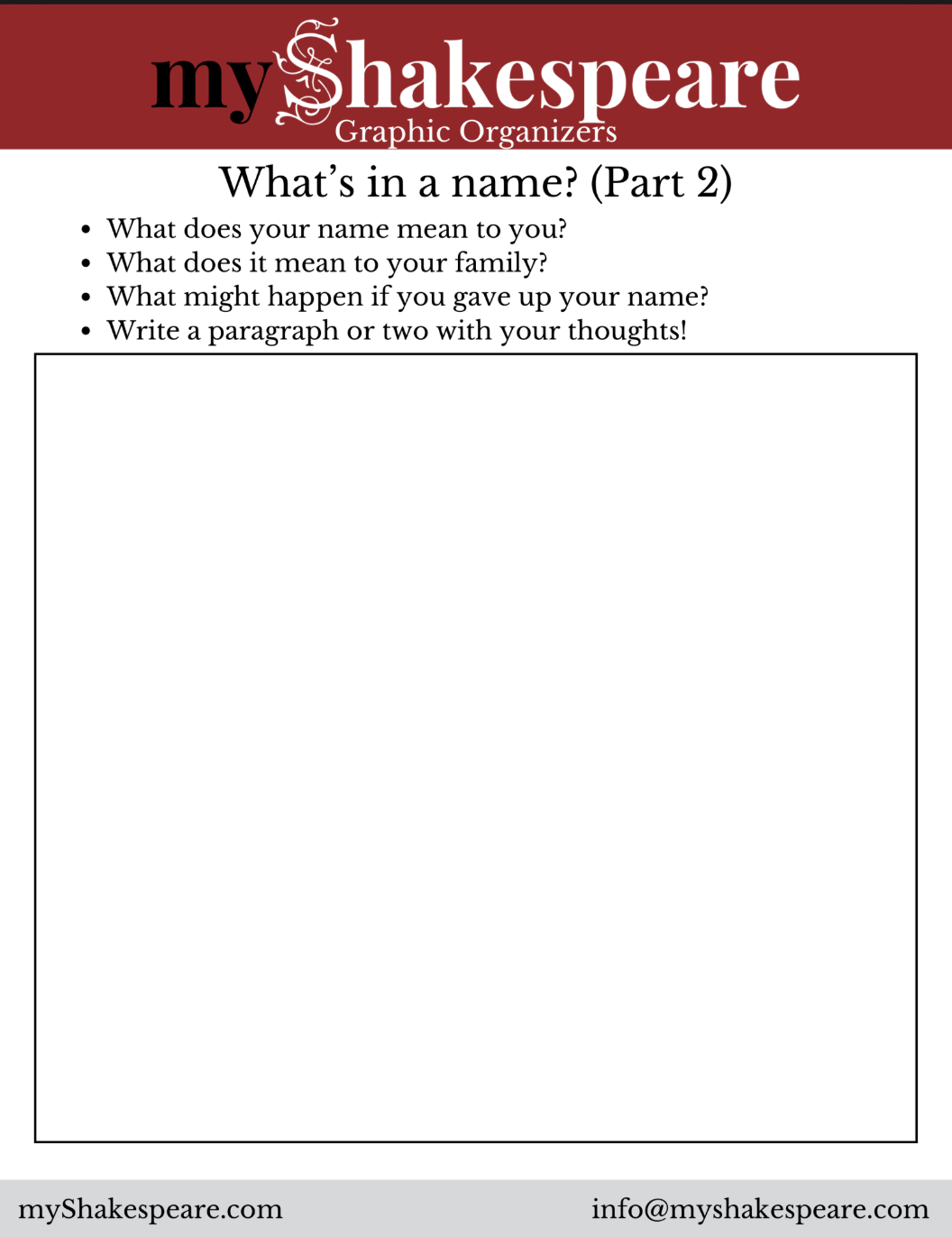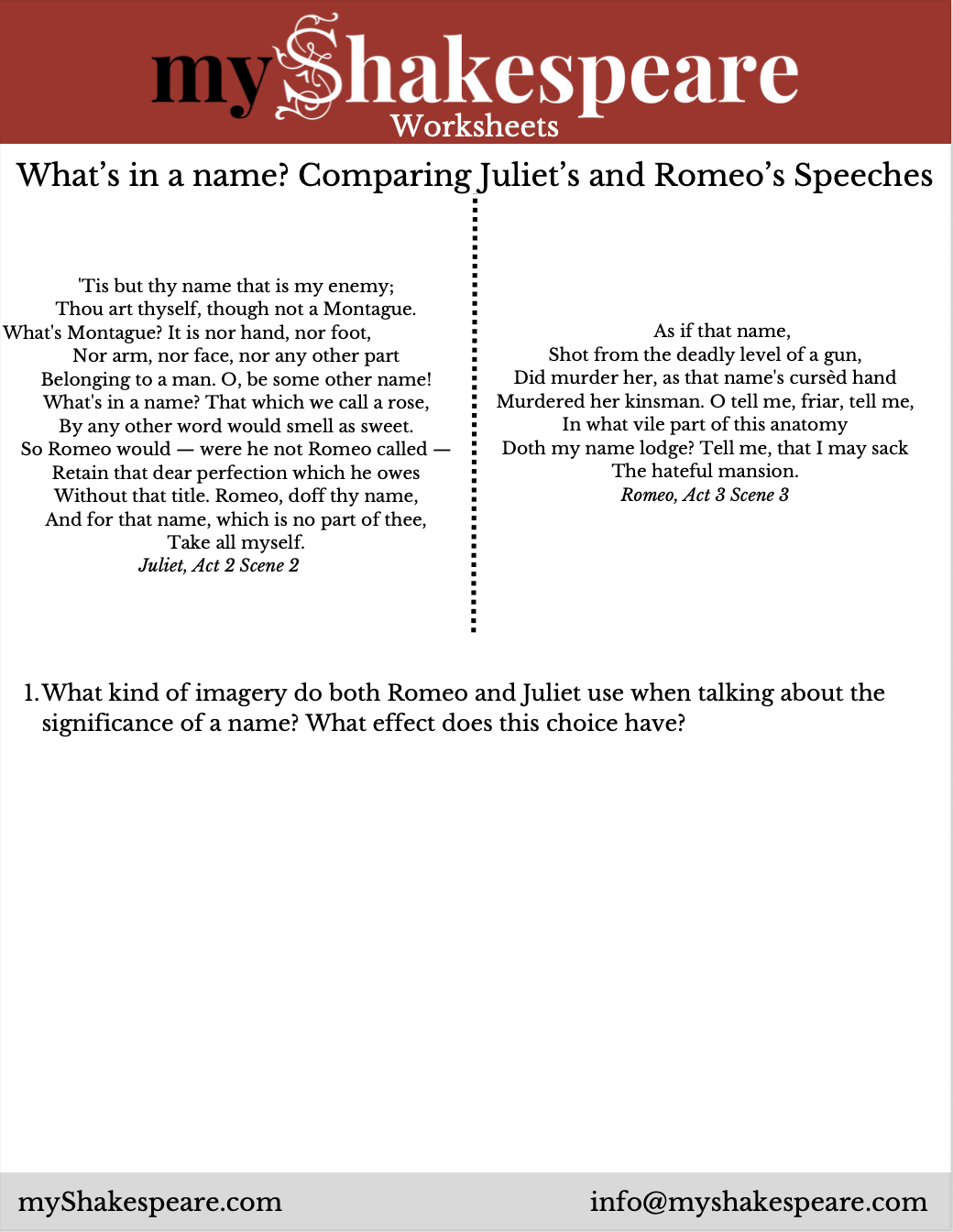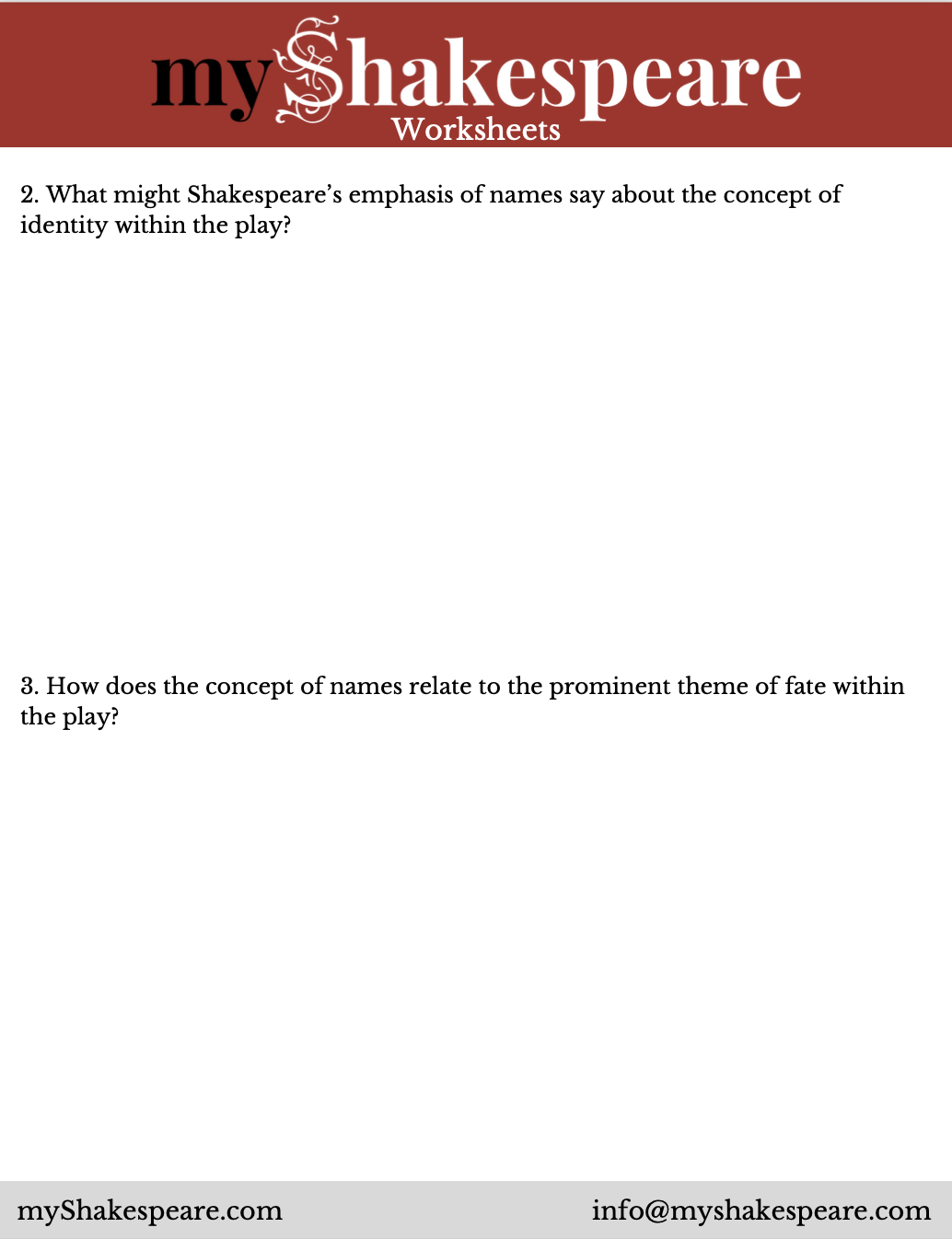Looking for tech-free activities for your Romeo and Juliet unit this year? myShakespeare’s multimedia resources—like our character interviews, song summaries, and animated notes—go a long way when it comes to improving comprehension and keeping students engaged. But we know that sometimes it’s nice to get students putting pen to paper. This pair of worksheets inspired by the question, “What’s in a name?”, will get your students thinking critically about the play. Keep an eye out for more resources like these in our revamped curriculum resources, coming soon!
What’s in a Name?-Graphic Organizer


Designed to be introduced in Act 2, Scene 2 after reading Juliet’s famous “What’s in a name?” speech, this activity helps students contemplate the significance of names in both the play and their own lives. Use it to explore themes of identity, loyalty, and familial bonds, or to discuss how Shakespeare used names to deepen characterization.
Download the “What’s in a name?” Graphic Organizer
What’s in a name?-Speech Comparison Worksheet


Designed for use after reading Act 3, Scene 3, this worksheet asks students to compare Juliet’s “What’s in a name?” speech from Act 2, Scene 2, with Romeo’s speech in Act 3 as he laments over the curse of his own name. Use these prompts to help students dive deeper into themes of identity and fate, and to notice Shakespeare’s use of imagery.
Download the “What’s in a name?” Speech Comparison Worksheet
These worksheets can be used on their own or together to focus on specific themes and skills throughout the play. Make sure students are prepared to think about these concepts by utilizing myShakespeare’s digital notebook feature to track themes of identity, family, and fate, or to tag Shakespeare’s use of imagery in every scene!










